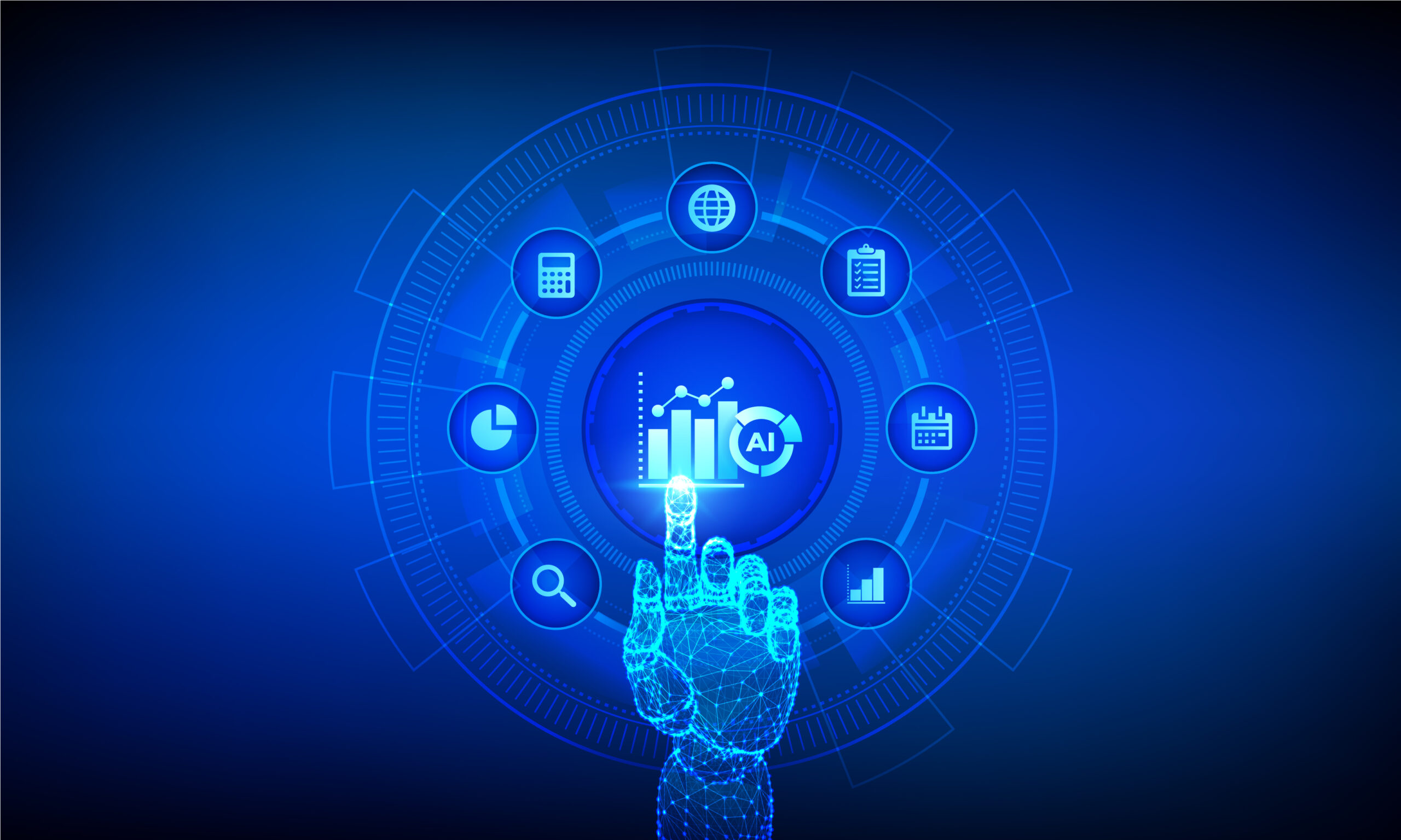IMPACT OF AI AND MACHINE LEARNING IN BUSINESS ANALYTICS
In today’s data-driven world, businesses are looking for innovative ways to stay ahead of the competition. Artificial intelligence (AI) and machine learning (ML) are restructuring how businesses approach data analysis. Depending on traditional methods of data processing and decision-making is fast disappearing. AI and ML are not only automating tasks but are also providing deep insights that were once thought to be out of reach.
In this blog, we will explore how AI and machine learning are revolutionizing business analytics and empowering organizations to make more informed, strategic decisions.
Enhanced Data Analytics
Traditionally, business analytics relied heavily on descriptive analytics (i.e., examining past data to understand what happened). Now, with the help of AI and machine learning algorithms, businesses can use predictive analytics to forecast future outcomes with greater accuracy.
For example, AI-driven tools can analyze historical sales data, identify patterns, and predict future trends. This allows companies to predict demand, optimize inventory, and streamline supply chains. With machine learning algorithms continuously improving as they process more data, the predictions become more accurate over time, giving businesses a competitive edge in market planning.
Automation of Work
AI and ML can automate tasks that traditionally required human intervention. In business analytics, this means that data cleaning, sorting, and processing can be handled by machines, allowing analysts to focus on more complex problem-solving.
Machine learning models can automatically detect inconsistencies in datasets, identifying issues that need further investigation. This automation not only improves efficiency but also reduces human error in data processing. With AI, businesses can achieve faster insights and make quicker, data-driven decisions.
Revolutionizing Decision Making & Risk Management
Decision-making is always a complex process, involving a mix of intuition, experience, and data. AI and machine learning are enhancing decision-making by providing businesses with powerful tools to analyze large volumes of data and uncover insights.
For example, predictive analytics can help businesses identify potential risks and opportunities early on, enabling them to make more informed, data-backed decisions. In financial services, machine learning models are used to assess credit risk, market trends, and investment opportunities, allowing businesses to make smarter, more profitable decisions. The ability to make these informed decisions in a timely manner is critical for businesses looking to stay competitive.
REAL TIME EXAMPLE:
- Online shopping platform
- Fraud deduction in financial services
- Chatbots
Online Shopping Platform
Online shopping platforms use AI and machine learning to analyze customer behavior, purchase history, and browsing patterns in real time. This data is then used to create personalized product recommendations, enhancing the shopping experience. By predicting what products a customer might want next, they can increase conversions, boost sales, and enhance customer satisfaction. Shopping platforms' machine learning algorithms like collaborative filtering and deep learning are at the core of their recommendation systems.
Fraud Deduction in Financial Service
Banks and financial institutions use AI and machine learning algorithms to monitor transactions in real-time for signs of fraud or suspicious activity. By analyzing vast amounts of transaction data, the system can identify patterns indicative of fraud, such as unusual spending behavior or transactions. AI can detect fraudulent activities much faster than traditional methods, preventing financial losses and enhancing security. Machine learning models continuously improve by learning from new data, adapting to emerging fraud tactics over time. Techniques like anomaly detection, clustering, and supervised learning are employed to build accurate fraud detection models.
Chatbots
Many companies use AI-powered chatbots and virtual assistants to provide real-time customer support. These systems use machine learning to understand customer queries, offer product recommendations, resolve issues, and guide users through processes like purchasing or booking appointments. This not only improves customer satisfaction by offering instant support but also reduces the workload on human agents, allowing businesses to scale their customer service operations efficiently. AI-powered chatbots can also analyze interactions to improve responses over time, using ML algorithms, sentiment analysis, and decision trees to deliver personalized and context-aware assistance.
References
- Imaginovation - Michael Georgiou
- CallMiner - A Team of Callminer
